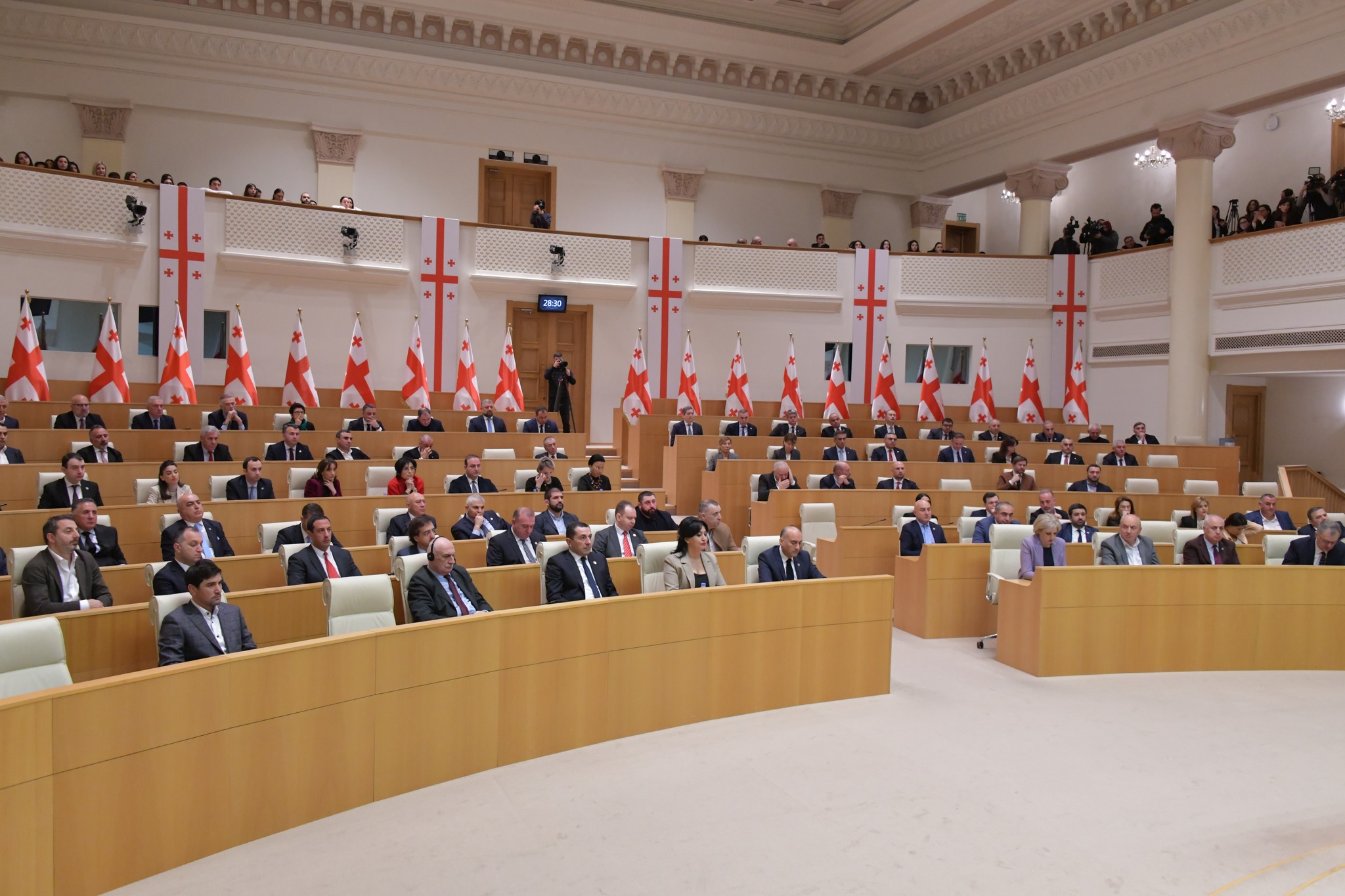GD’s Controversial Juvenile Justice Bill Could Place Minors in Closed Facilities
Georgian Dream is pushing forward a juvenile justice bill that introduces special procedures for children aged 10 to 18 who committed offenses before turning 14, including the option of placing them in designated facilities.
While the ruling party claims the bill is intended to rehabilitate and support minors and prevent crime, critics, including psychologists and human rights defenders, warn it risks stigmatizing children and will fail to deliver the resocialization it promises.
Authorities say the draft Law on the Rehabilitation and Support of Juveniles in Conflict with the Law, which the disputed Parliament is currently deliberating, is modeled after a “German version.” Critics, however, warn that the bill threatens children’s basic freedoms and contradicts international standards, risking harm to their psychological development.
The bill “aims to resocialize, rehabilitate, and support minors below the age of criminal liability by identifying their individual needs, as well as to help prevent crimes,” the explanatory note of the bill states. The bill’s sponsors argue that the “absence of effective levers” for responding to offenses committed by children under the age of criminal liability is the key challenge the initiative seeks to address.
According to the draft, the law would create a new body under the Justice Ministry – the Center for the Rehabilitation and Support of Minors in Conflict with the Law – which would coordinate the rehabilitation process. Children aged 10 to 18 who a prosecutor concludes committed a criminal offense before turning 14 would be referred to the Center.
In the Center, a “multidisciplinary group” would review an “individual assessment report,” determine what services or programs the child should undergo, and set timelines for their implementation. Participation in these programs must last at least one month and no more than one year, though the multidisciplinary group may extend it for additional years.
The sponsors of the bill insist the state bodies will work in coordination “to help the minor while taking their best interests into account.”
“Participation in a service or program may initially lack the potential to achieve positive results, and, considering the best interests of the minor, more invasive measures may be required from the outset,” the explanatory note says, introducing what critics view as the bill’s most alarming element – the “House for the Rehabilitation and Support of Minors,” a closed facility where children could be placed.
Children aged 10 to 18 could be sent to the House, among other reasons, if they commit a new intentional offense after completing a program, or if they commit an offense that would normally carry a sentence of more than five years’ imprisonment, regardless of whether they have previously been referred to a service or program.
Placement in the House would require a court order. Minors could be sent there for up to six months at a time, but the term could be extended repeatedly, with each extension also limited to six months.
Children will have no right to leave the House.
“A minor placed in the House will be provided with general, vocational, and higher education,” the explanatory note says, adding, “The facility will be oriented toward the child’s individual development, education, and behavioral correction.”
Deputy Interior Minister Aleksandre Darakhvelidze dismissed what he called “false interpretations” that the House would resemble a “prison-style facility,” insisting the government is adopting a German-inspired model. He argued the legislation “will address the concerns of the public and many private businesses that have suffered damages, at a time when the state lacked effective mechanisms to respond to such actions.”
“We chose the most experienced model, the German version, which means that, for minors under 14, the goal should not be punishment or criminal prosecution, but rather correcting their behavior and returning them to socially appropriate conduct and environment through care and support programs,” said Shalva Papuashvili, Speaker of the disputed Parliament.
Critics Fear ‘Harmful Results’
Psychologists and human rights groups warn that the bill, if adopted, may further worsen the situation for children’s rights.
“Instead of achieving its stated goal of rehabilitating and supporting minors, the bill would result in serious violations of children’s rights and a significant setback in their protection,” said the Social Justice Center, a local human rights watchdog, which disputes the bill.
“Children who are placed in a special facility will clearly no longer be able to access quality education […] and will be isolated from their community, which causes additional harm to their development and social integration,” the group added.
Psychologists, mediators, and social workers said in a joint statement that the draft law would lead to “harmful results.”
“In particular, it will lead to the stigmatization of children and the reinforcement of the ‘offender’ label; hinder children’s social and emotional development; increase risks for children with difficult behaviour; and raise the likelihood of depression, anxiety, self-harm, and other mental health problems,” they said, calling on the disputed Parliament to drop the bill.
The bill is being considered under the standard procedure, which means it will take several weeks before it becomes law.
Also Read:
- 18/07/2025 – UN Committee Calls on Georgia to Suspend Court Order Seeking NGO Beneficiary Data
- 27/06/2024 – UN Committee Finds Georgia Failed to Protect Children Against Violence, Abuse in Church-Run Orphanage
